Continuing his working program in the Mekong Delta, on August 12, Prime Minister Pham Minh Chinh continued to conduct field surveys and had a working session with leaders of central ministries, branches, and leaders of provinces and cities on the situation and work to overcome subsidence, landslides and flooding in provinces and cities in the Mekong Delta.
* Landslides are complicated and have serious impacts.
To have a practical basis, on the morning of August 12, Prime Minister Pham Minh Chinh and the working delegation continued to travel by helicopter and motorboat to survey the West sea dike area, Ca Mau province; survey the embankment to prevent landslides in the residential area of Nam Dong Ho belt, Ha Tien city, Kien Giang province; survey the embankment line to protect the residential area of Chau Phong commune, Tan Chau district, An Giang province; survey Ho Cu embankment and landslides in Dong Thap province.
After a field survey, in the afternoon of the same day, in Can Tho city, Prime Minister Pham Minh Chinh had a working session with leaders of central ministries, branches, and leaders of provinces and cities in the Mekong Delta region on the situation and work to overcome landslides in this area.
 |
| The Prime Minister assessed that landslides, riverbank and coastal erosion, and impacts on mangrove forests are serious in the Mekong Delta, especially in coastal provinces. Photo: VOV |
Attending the event were Minister of Agriculture and Rural Development Le Minh Hoan, Minister of Science and Technology Huynh Thanh Dat, Minister of Natural Resources and Environment Dang Quoc Khanh; leaders of several central ministries and branches; Secretaries and Chairmen of People's Committees of provinces and cities in the Mekong Delta region, and experts and scientists.
According to the Ministry of Agriculture and Rural Development, in recent years, due to unusual weather developments, especially the impact of climate change and the impact of unsustainable socio-economic development in upstream and intra-regional countries, riverbank and coastal erosion in the Mekong Delta has been very complicated, seriously threatening the lives and property of the State and people, and seriously affecting the ecological environment.
With a dense system of rivers, canals, and streams and over 740km of coastline, from 2016 to present, the provinces and cities in the Mekong Delta have had a total of 779 landslides with a total length of 1,134km, of which 666 riverbanks/744km; 113 coastal areas/390km.
In recent times, ministries, branches and localities have focused more on the management of river banks, riverbeds and coastlines. Accordingly, communication and handling of violations have been strengthened; investigation and assessment of the current status of landslides, river banks and coastlines have been organized; and maps for prevention and control of landslides on river banks and coastlines have been developed. In particular, from 2016 to present, the Central Government has invested and planned to invest VND 16,223 billion in the provinces of the Mekong Delta to build 218 embankments to prevent landslides, with a length of 324km.
However, the landslide situation in the Mekong Delta is increasingly serious. Currently, the whole region has 561 landslide points, of which, river banks have 513 points/602km; the coast has 48 points/208km. Notably, the whole region still has 63 especially dangerous landslide areas (river banks have 39 points/118km, coast has 24 points/86km), with a total length of 204km.
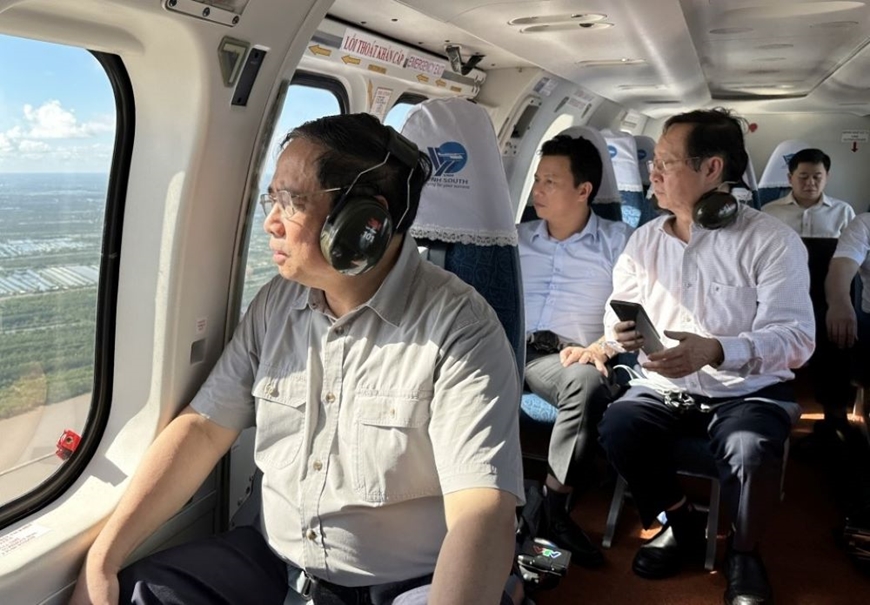 |
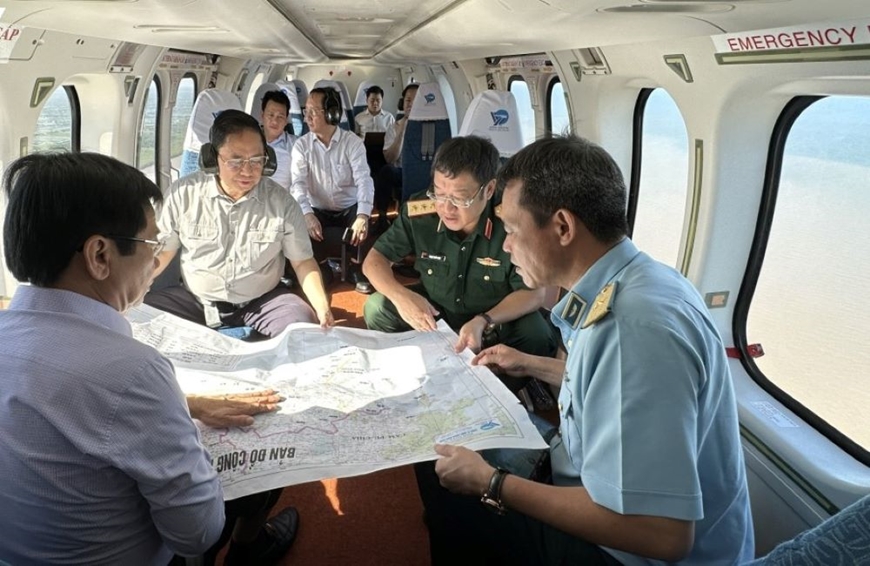 |
Prime Minister Pham Minh Chinh inspected coastal erosion in the Mekong Delta provinces by helicopter. Accompanying him was Senior Lieutenant General Pham Hoai Nam, member of the Party Central Committee and Deputy Minister of National Defense. Photo: VOV |
At the meeting, delegates focused on assessing the situation, analyzing the causes; proposing both immediate and long-term tasks and solutions to overcome and prevent riverbank and coastal erosion in the Mekong Delta, protect people's lives, property, and livelihoods, state works and technical facilities, and promote rapid, sustainable development of the Mekong Delta, adapting to climate change. In particular, proposing a number of mechanisms to mobilize resources and implement the proposed tasks and solutions.
In particular, it is proposed to develop a general project on preventing and combating riverbank and coastal erosion in the Mekong Delta region; allocate funds to repair particularly dangerous landslide areas; strengthen population management along riverbanks and coastal areas; effectively control socio-economic activities to avoid impacts on the environment and nature...
* Focus on sustainable development of the Mekong Delta
Concluding the working session, Prime Minister Pham Minh Chinh said that he would continue to implement the resolutions of the Party, the National Assembly and the Government on the development of the Mekong Delta and in the spirit of the direction of General Secretary Nguyen Phu Trong "not to sacrifice progress and social justice to pursue mere economic growth". The Prime Minister's working trip focused on the prevention and control of subsidence, flooding and landslides in the Mekong Delta; overcoming limitations in the implementation of policies, guidelines and resolutions, in the spirit of "what has been said must be done, what has been committed must be done, what has been done must have concrete results".
According to the Prime Minister, through a field survey in 8 localities in the Mekong Delta, the Prime Minister has noted a number of particularly dangerous landslide hotspots in the localities; requiring localities to complete the dossiers according to regulations, send them to competent authorities for consideration, decision and immediate handling. For the remaining dangerous landslide spots, ministries, branches and localities will review and synthesize the particularly dangerous landslide areas, study and balance, allocate resources, submit to competent authorities for decision to support localities in early handling, to be completed in August.
The Prime Minister emphasized that since the beginning of the year, the situation of climate change and natural disasters has been very complicated in the world and in Vietnam, causing great damage to people and property. In recent days, landslides, flash floods, riverbank and coastal erosion have continued to cause serious damage to people's lives, houses and property, and many traffic routes and infrastructure have been damaged, causing insecurity among the people, especially in some provinces of the Central Highlands, the Northern mountainous region and the Mekong Delta.
As a particularly important strategic area in terms of politics, economy, society, national defense, security, foreign affairs, and sustainable development, the Mekong Delta is facing many challenges such as: Impacts of climate change, rising sea levels; impacts from water exploitation and use activities of countries in the upper Mekong River leading to the risk of local freshwater shortages, especially a sharp decline in alluvium in the region; subsidence, lowering of the ground...
“The rate of land subsidence is 3-4 times higher, and in some places up to 10 times higher, than the rate of sea level rise, showing that the Mekong Delta is at risk of gradually sinking due to both land subsidence and sea level rise. Many sea dykes and coastal roads were previously designed to be high enough but are now flooded by tidal overflow,” the Prime Minister pointed out.
According to the Prime Minister, the problems of saltwater intrusion, environmental pollution, and flooding during high tides occur in many urban areas. Riverbank and coastal erosion and loss of coastal mangrove forests are serious and alarming in the Mekong Delta.
“Statistics show that over the past 50 years, the area of mangrove forests has decreased by about 80%, from 2011 to 2016 it decreased by over 15,300 hectares. Every year, 300-500 hectares of mangrove forests are lost, affecting thousands of households along the coast, rivers, and canals,” said the Prime Minister.
The Prime Minister affirmed that, together with the Party Central Committee, the Politburo, the National Assembly, and the Government, they have always paid attention to and issued many policies and implemented many solutions to promote the potential and advantages, creating momentum for socio-economic development in the Mekong Delta, including natural disaster prevention and control, climate change response, and sustainable development.
However, there are still some difficulties and problems that need urgent solutions. Some investment prevention and control projects are not really effective and do not ensure sustainability,” the Prime Minister frankly said.
The Prime Minister emphasized that the habit of living along rivers, canals, and the coast, many economic and social activities mainly rely on rivers and water, so when landslides occur, they directly affect people. The planning of living space and socio-economic development planning for the region is still limited. Landslides are developing strongly and complicatedly; there is a lack of resources for investment in prevention. Some landslide prevention and control works are not effective. Maintenance work has not been focused on; mobilization of non-social resources for investment in landslide prevention and control is still limited...
* Urgent and long-term solutions are needed
Prime Minister Pham Minh Chinh pointed out that the goal is to prevent and repel subsidence, landslides and flooding in the Mekong Delta; develop, protect and sustainably exploit land, forests, resources and minerals; promote production and business, create livelihoods for people and businesses, re-plan living spaces; protect the ecological environment and develop sustainably.
Therefore, it is necessary to raise awareness of the dangers and consequences of subsidence, landslides and inundation in the Mekong Delta; strengthen the leadership, direction and organization of management and implementation of Party committees and authorities and mobilize people's resources to participate in the prevention and control of subsidence, landslides and inundation; have urgent solutions in the short and long term to respond to subsidence, landslides and inundation; mobilize all legal resources for the prevention and control of subsidence, landslides and inundation; strengthen decentralization and delegation of authority, along with resource allocation, improve implementation capacity and promote inspection and supervision in the prevention and control of subsidence, landslides and inundation.
The Prime Minister emphasized the motto: Grasp and accurately forecast the situation; quickly, promptly and effectively; mobilize all human, financial and material resources to prevent and combat subsidence, landslides and flooding.
The Prime Minister requested localities to proactively support the stabilization of the lives of households in areas affected by landslides; proactively evacuate households in areas at high risk of landslides to avoid being passive and unexpected, leading to loss of life when landslides occur; continue to handle and repair especially dangerous landslide areas to ensure the safety of people and important infrastructure.
The Prime Minister requested localities to coordinate with relevant agencies to review and synthesize especially dangerous and urgent landslide areas that affect people's lives and property, develop specific projects, research, balance and allocate resources, and propose to competent authorities to consider, decide and implement projects that need to be done immediately.
The Prime Minister assigned the Ministry of Agriculture and Rural Development to preside over and coordinate with the Ministries of Planning and Investment, Finance and localities to review and synthesize particularly dangerous landslide areas. The Ministry of Planning and Investment shall preside over and coordinate with the Ministry of Finance to balance and arrange resources to submit to the Prime Minister to support localities in early handling.
In the long term, the Prime Minister requested to do a good job of planning; assess the causes of landslides, determine what the causes are to have appropriate solutions, ensure effectiveness, sustainability, and avoid costs. Accordingly, the Ministry of Agriculture and Rural Development was assigned to preside over and coordinate with the Ministry of Science and Technology, the Ministry of Natural Resources and Environment to organize research, determine the specific causes leading to the current serious riverbank landslides, coastal erosion, and mangrove forest degradation.
 |
| The Prime Minister sympathizes with people in landslide areas. |
Along with that, strictly control the planning and construction of works and houses along rivers and coasts; proactively arrange and relocate residents, especially in areas at high risk of landslides; manage sand mining, groundwater exploitation, and mangrove forests; review areas at risk of landslides, proactively invest in landslide prevention; proactively develop fundamental, systematic, and sustainable investment projects to prevent and overcome landslides, focus on planting and restoring coastal mangrove forests, and proactively relocate residents to safe places.
Notably, the Prime Minister proposed to continue mobilizing state resources; at the same time, there should be appropriate mechanisms and policies to socialize and mobilize non-state resources to invest in landslide prevention and control works.
Relevant agencies should study fundamental, systematic, and long-term strategic solutions such as building dykes to reclaim the sea on the East coast in places with suitable conditions (to develop traffic, block waves, prevent landslides and erosion, and retain alluvium for sea reclamation).
The Prime Minister emphasized that this is a difficult and complicated problem. One meeting or a few documents cannot completely resolve this situation, but it must be done step by step, learning from experience as we go along, and gradually expanding. The spirit is that determination must be high, efforts must be great, actions must be drastic, focused, and decisive, each task must be completed; decentralization and delegation of power must be promoted.
The Prime Minister requested ministries, branches and localities to proactively grasp the situation, direct and deploy the handling and remediation of landslides according to their assigned functions, tasks and powers, ensuring timeliness, effectiveness and suitability to actual conditions; promptly report and propose to competent authorities to direct the handling of issues beyond their authority.
On this occasion, the Prime Minister requested localities to accelerate planning work; promote disbursement of public investment, three national target programs; prioritize growth; remove difficulties for markets; promote administrative procedure reform; decentralize and delegate more power, associated with resource allocation and inspection, supervision and control of power.
VNA
* Please visit the Politics section to see related news and articles.
Source






























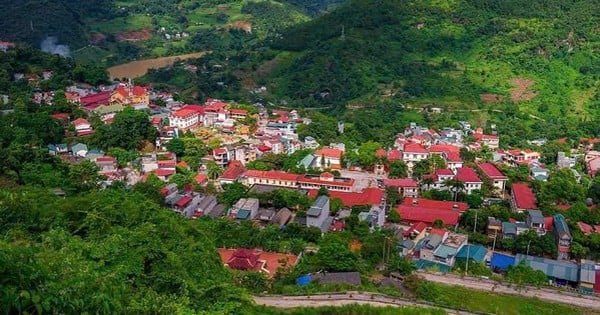

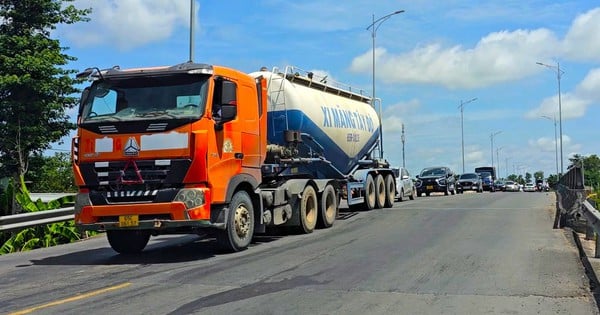
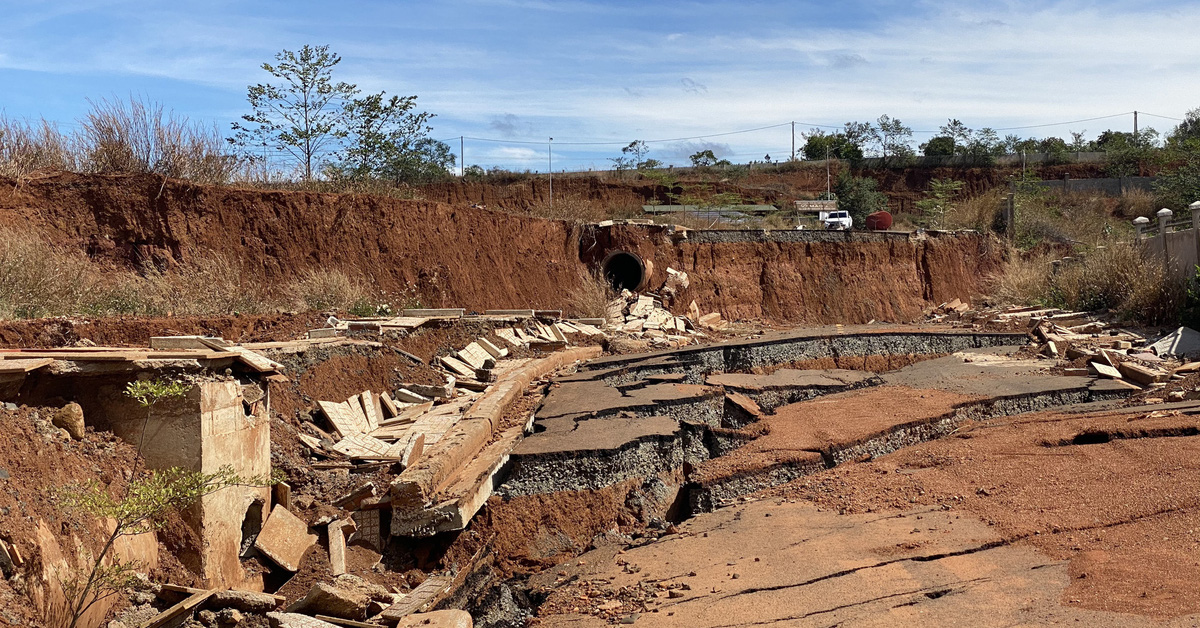

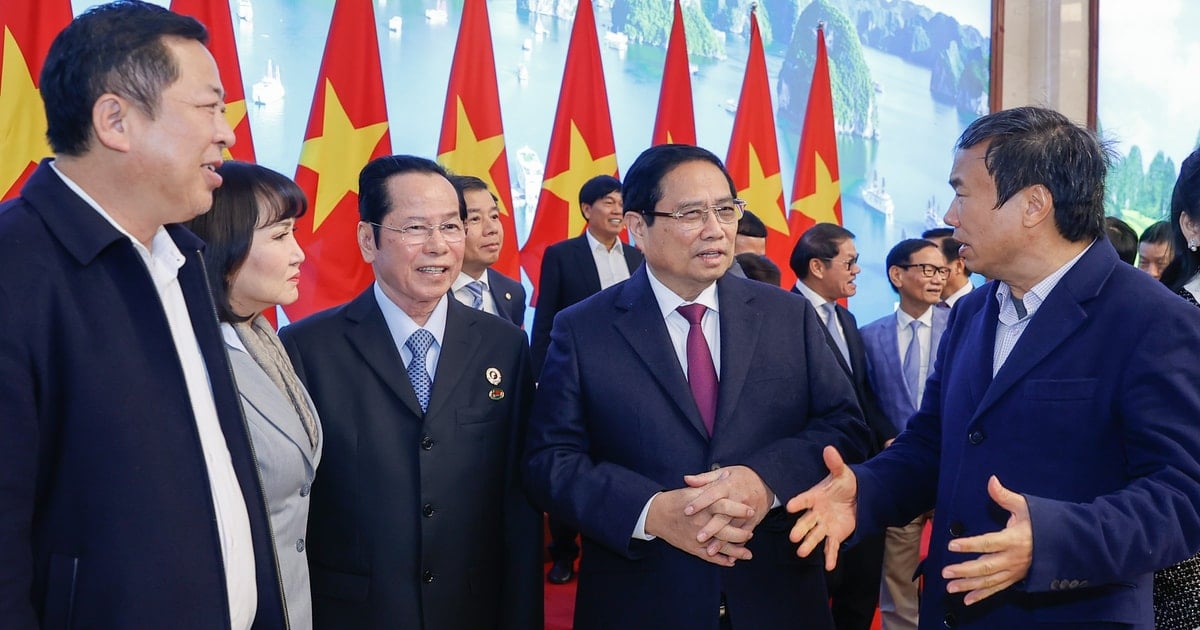







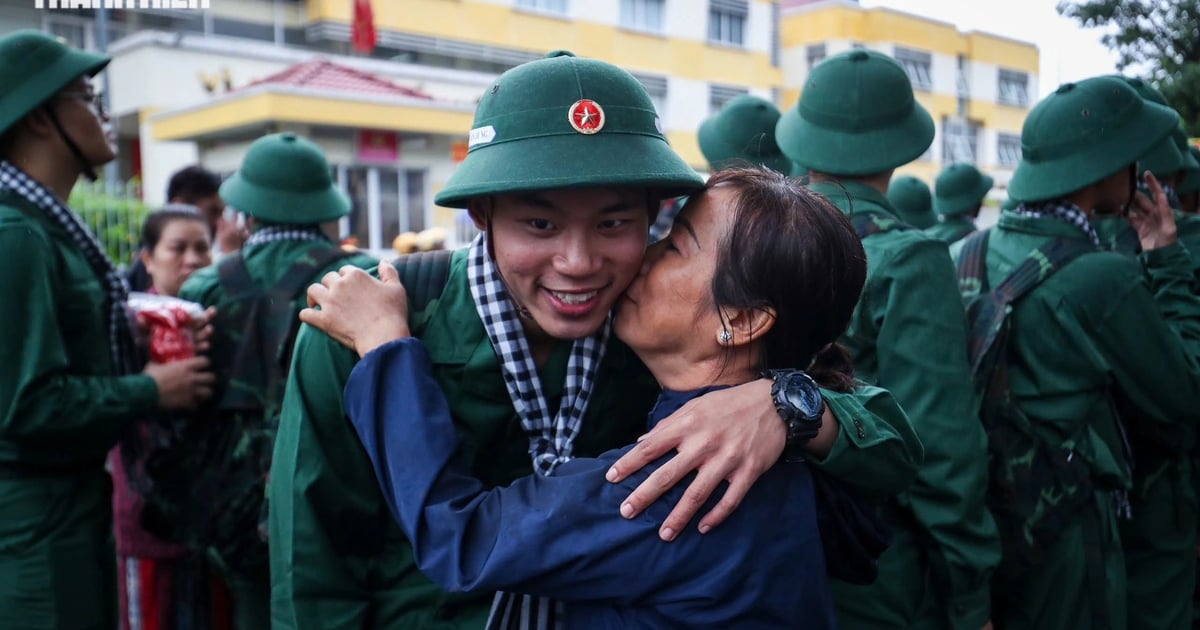
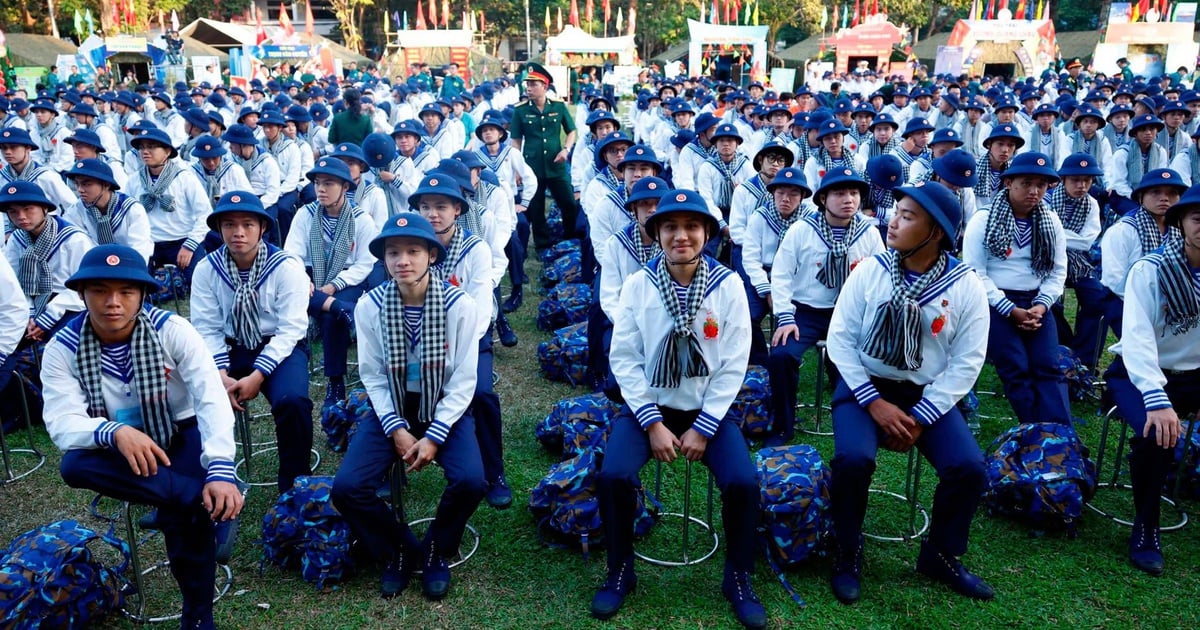
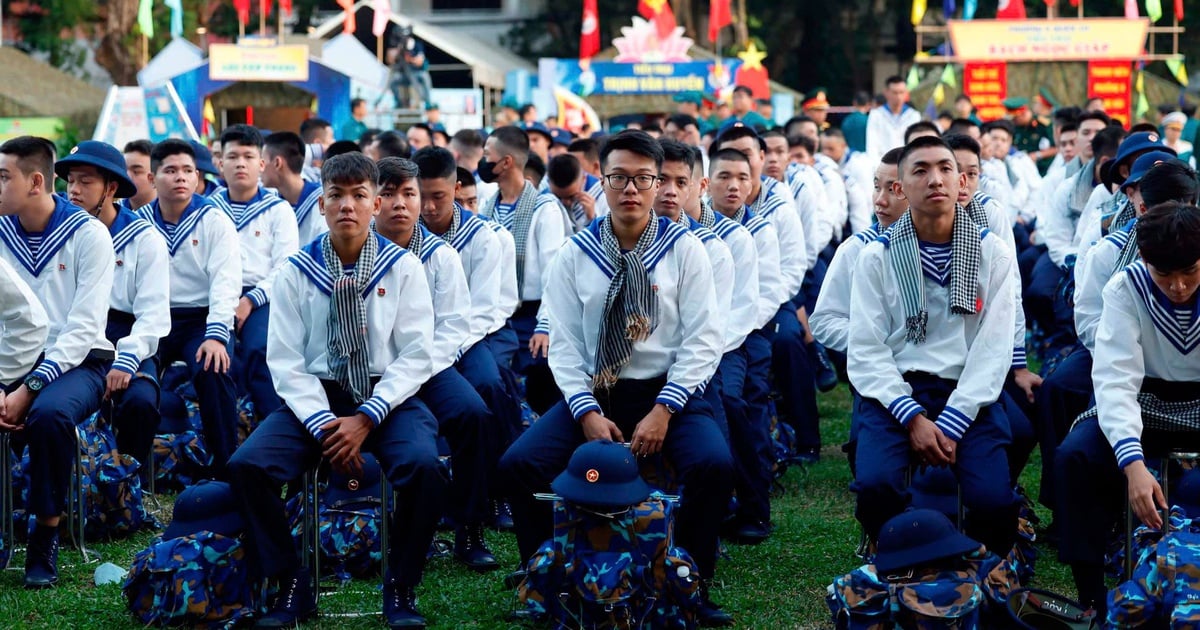
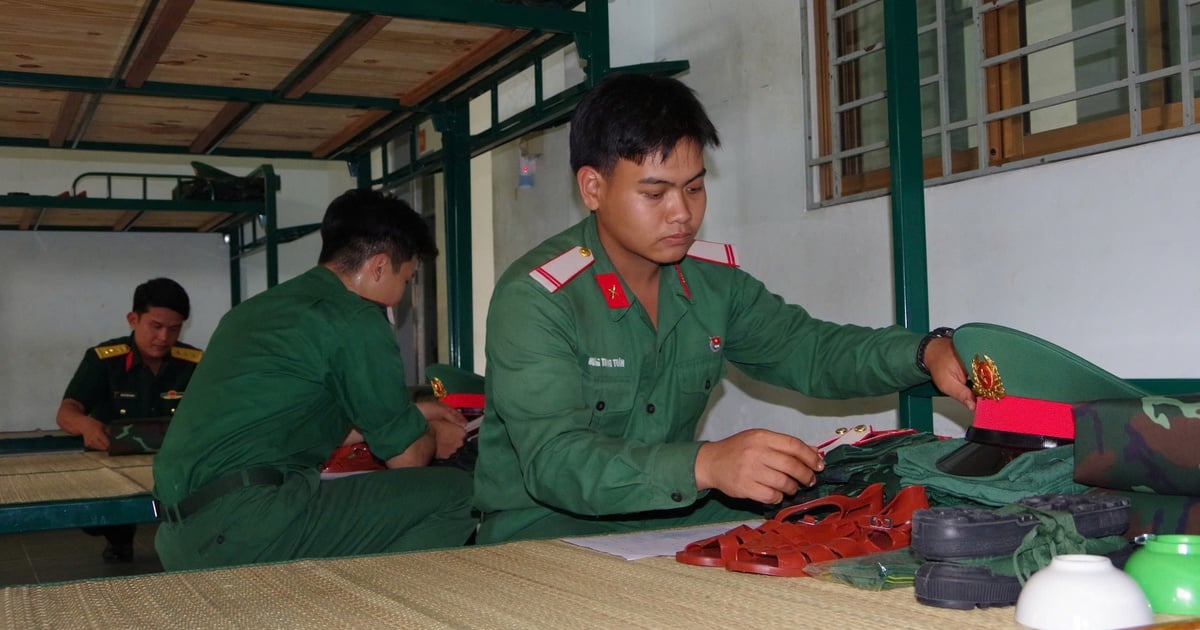

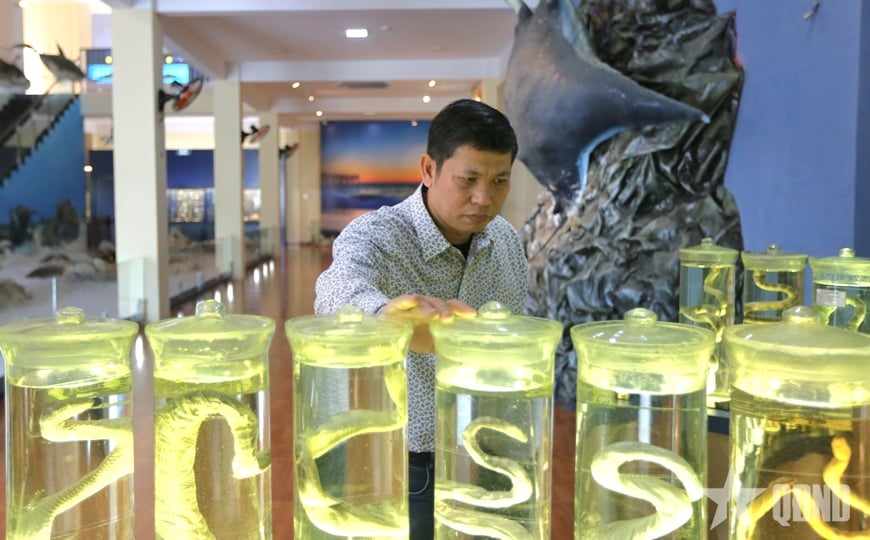
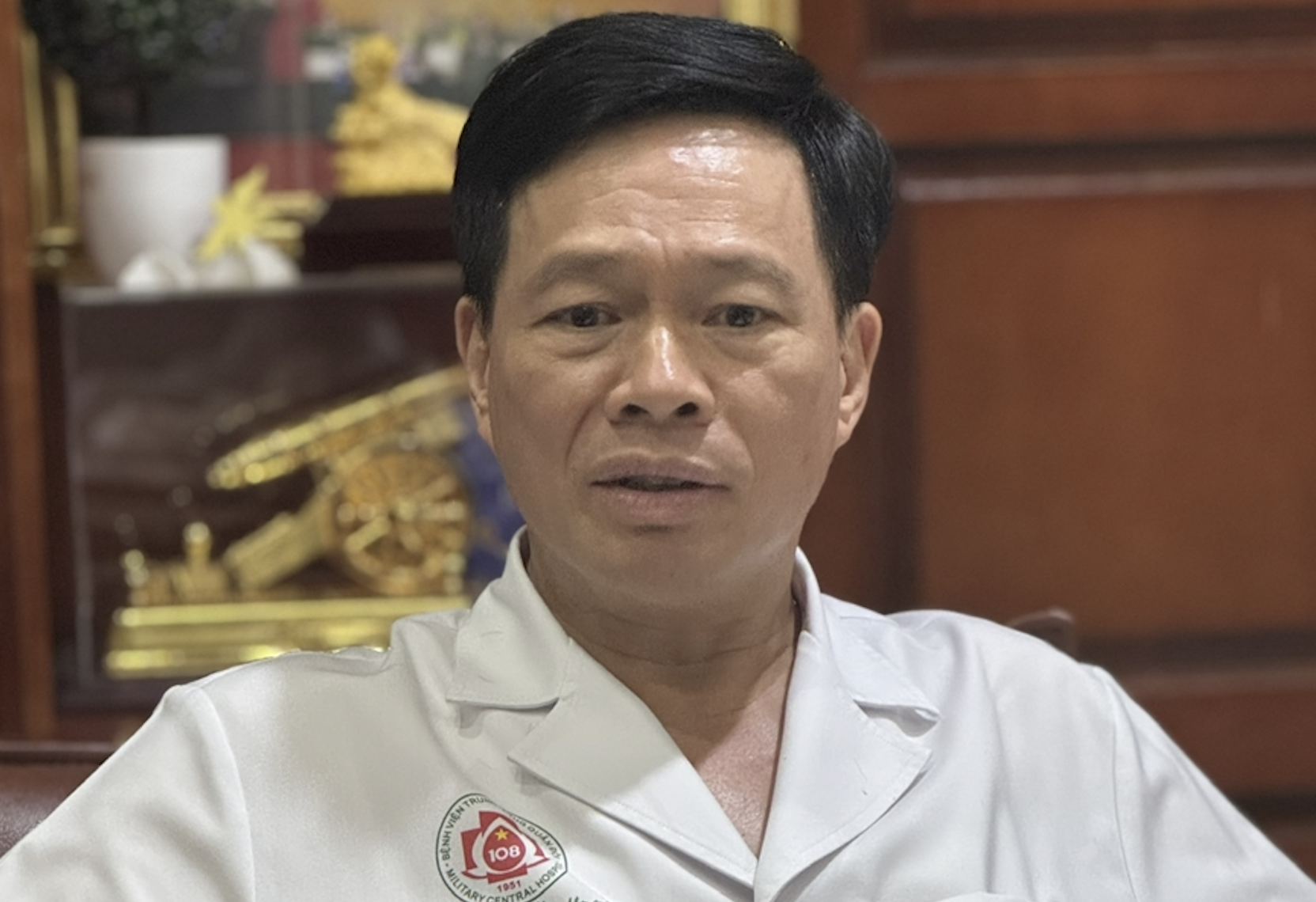


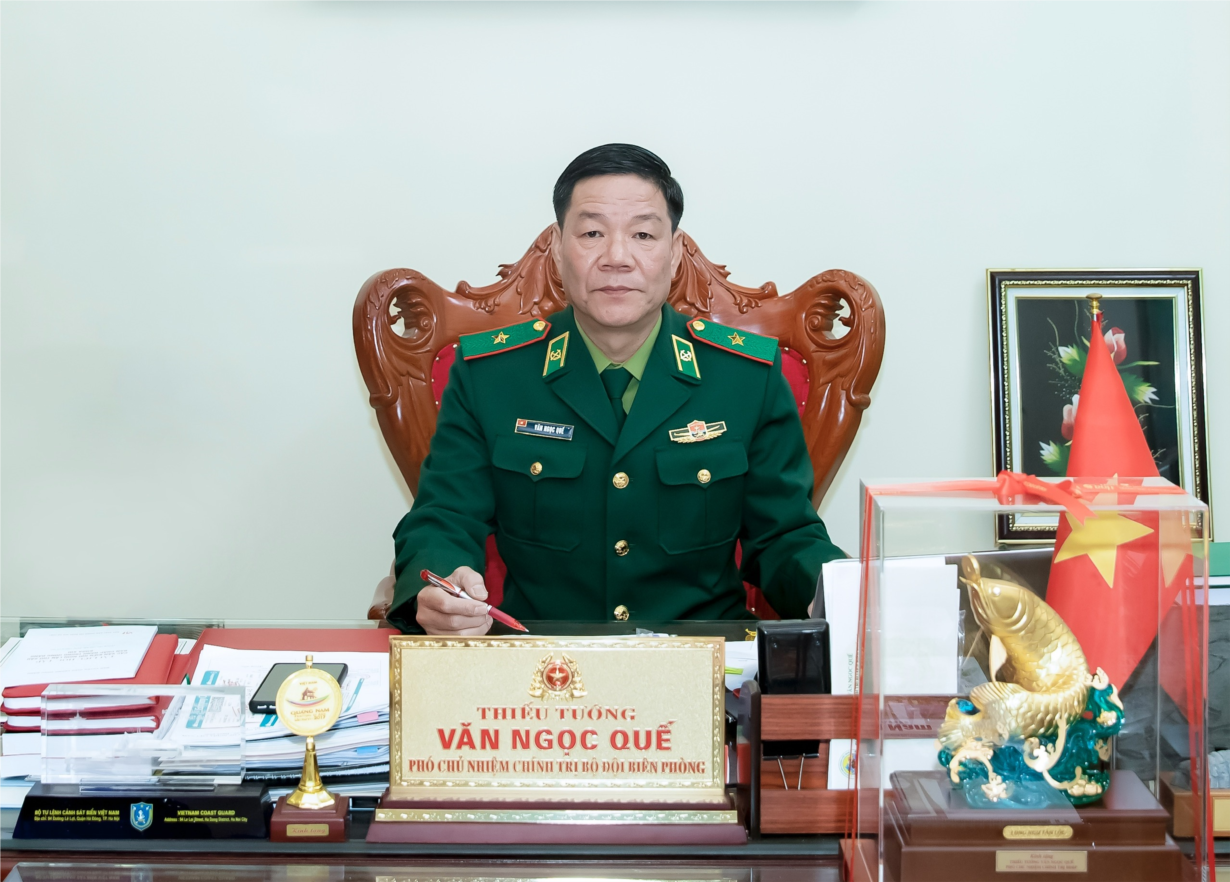













Comment (0)